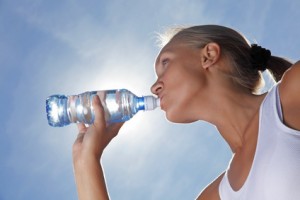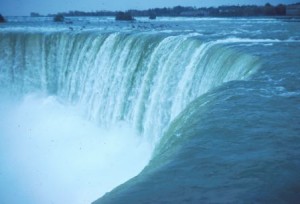Dehydration can be mild, moderate or severe, depending on how much of your body weight is lost through fluids.
Two early signs of dehydration are thirst and dark-coloured urine. This is the body’s way of trying to increase water intake and decrease water loss.
Other symptoms may include:
dizziness or light-headedness
tiredness
dry mouth, lips and eyes
passing small amounts of urine infrequently (less than three or four times a day)
Dehydration can also lead to a loss of strength and stamina. It’s a main cause of heat exhaustion.
You should be able to reverse dehydration at this stage by drinking more fluids.
If dehydration is ongoing (chronic), it can affect your kidney function and increase the risk of kidney stones. It can also lead to muscle damage and constipation.
When to see your GP
See your GP if your symptoms continue despite drinking fluids, or if you suspect that your baby or toddler is dehydrated.
You should also contact your GP if your baby has had six or more episodes of diarrhoea in the past 24 hours, or if they have vomited three times or more in the past 24 hours.
If dehydration is suspected, you may be given a blood test or a urine test to check the balance of salts (sodium and potassium) in your body.
Severe dehydration
If dehydration is left untreated, it can become severe.
Severe dehydration is a medical emergency and requires immediate medical attention.
Contact your GP, out-of-hours service or NHS 111 straight away if you have any of the following symptoms:
feeling unusually tired (lethargic) or confused, and you think you may be dehydrated
dizziness when you stand up that doesn’t go away after a few seconds
not passing urine for eight hours
a weak pulse
a rapid pulse
a low level of conciousness
If severe dehydration is not treated immediately, it can lead to complications. This level of dehydration needs hospital treatment and you will be put on a drip to restore the substantial loss of fluids.
Dehydration in babies
A baby may be dehydrated if they have:
a sunken soft spot (fontanelle) on their head
few or no tears when they cry
a dry mouth
fewer wet nappies
dark yellow urine
drowsiness
fast breathing
cold and blotchy-looking hands and feet
Read about how to treat dehydration in babies.





